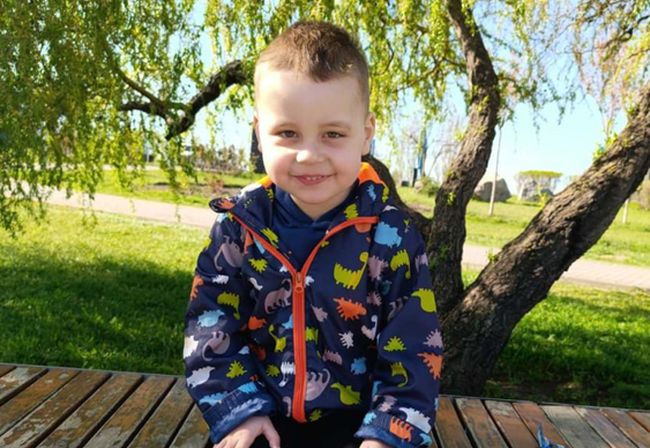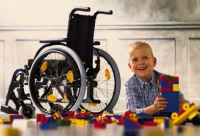The plight of Romanian orphans leaving institutions with few prospects except drifting into a life of crime, prostitution and drugs prompted a Colorado couple to abandon their immediate retirement plans to help out. Read their story below.
Magdalena's Story
Magdalena was abandoned at birth and spent her early life, until the age of 19, at three different Romanian orphanages.
When she left her last orphanage she appeared to be a normal, attractive young woman. But World Vision staff who got to know her discovered her emotional and intellectual development had been stunted. Lacking financial resources, positive adult influence, and discernment, girls like Magdalena can easily find themselves ensnared in forced labor or prostitution rings.
Fortunately Magdalena benefited from World Vision’s Youth in Transition program. Teens in the program meet with families and take part in outings, arts and crafts and other activities to develop their social and teamwork skills.
Some, like Magdalena, are able to enter World Vision’s Life Skills Center, which provides a temporary home and “springboard” into adult life for teenage girls.
Under the center’s guidance, Magdalena quickly accomplished an important goal. She found a job in a shoe factory and earned her first-ever salary.
Alas, one other goal in her life has remained elusive. Her biggest dream was to find her mother, for whom she searched desperately. When she finally found her, the mother threatened to call the police and shut the door in Magdalena’s face.
But, to this day Magdalena refuses to say a bad word about her mother.
“My mom is beautiful,” was the only remark Magdalena’s friends heard from her after she returned from the encounter.
Meanwhile, Magdalena has a strong Christian faith. Growing up in an orphanage meant she had never been baptized, so she decided this was something she wanted to do. She asked two World Vision staff members to be her godparents — Carmen Cocoi and Vali Sabau.
“I’m so happy that Carmen and Vali are my godparents,” she exulted, after the baptism. “I feel close to them.”
Trading in Retirement To Help Others
Bob and Kitty Ehret recently returned from two years in Cluj, a Romanian city situated near the picturesque Transylvanian Alps. Kitty, 59, worked with World Vision’s Youth in Transition program which helps special needs orphans re-integrate into regular society, while Bob, a former executive at 62, acted as a consultant to World Vision management.
Kitty discovered that, although the Ceausecu regime — notorious for its mistreatment of orphans — has long since come to an end, life for most children forced to live in state-run institutions remains extremely grim, and teenagers who leave orphanages are poorly equipped to cope with life outside an institution.
She vividly remembers the day two young girls arrived at a World Vision residential center after leaving their orphanage. Each carried a plastic bag with a toothbrush and one change of clothes — all they had with which to begin a new life.
Many of the children Kitty dealt with were intellectually handicapped, a condition she attributes to neglect rather than an unfortunate accident of birth.
“It’s not that there was anything wrong with their brain, it’s just that they never had any stimulation. We now know through studies that the brain does not develop if there is no stimulation,” she maintains.
Kitty Ehert (on the far right, in the dark jacket) poses with the Youth in Transition team.
Learning Basic Life Skills
Kitty, a former nurse, says she spent much of her time teaching basic skills to children benefiting from the program.
“We talked about when you should wash hands, about not sneezing out loud, how to clean clothes, and how to eat properly, even on a low income,” she says.
She also taught Bible stories and took them for outings to places like ice cream parlors and pizza restaurants.
Kitty says one of the most heartbreaking experiences came during a class on sexuality, when she discovered that attitudes towards orphans in some segments of Romanian society remain very backward, and that many of the girls had been abused. Girls traveling by train from their orphanage to vocational school were sometimes pushed into the toilets by train conductors, even sexually assaulted and raped.
“They were abused in every way you can imagine — so much so they thought it was the norm. I was so angry and sick for about 10 days afterwards.”
Despite, or perhaps because of, these experiences, Kitty says the children were often extremely affectionate. During one class she recalls the enthusiasm of orphans to make valentine cards — a completely novel concept for them. Rather than confine their expressions of affection to a boyfriend of girlfriend, they showered cards on all their friends, teachers and World Vision staff.
“I fell in love with a lot of them. It’s hard not to love them — they are very lovable,” she says.
Kitty first became interested in the work in Cluj after making a trip there with the Evergreen chapter of Women of Vision—a World Vision program that brings women in the U.S. together to tackle poverty. Before departing for Romania on her most recent trip, she undertook three months of intensive language study.



